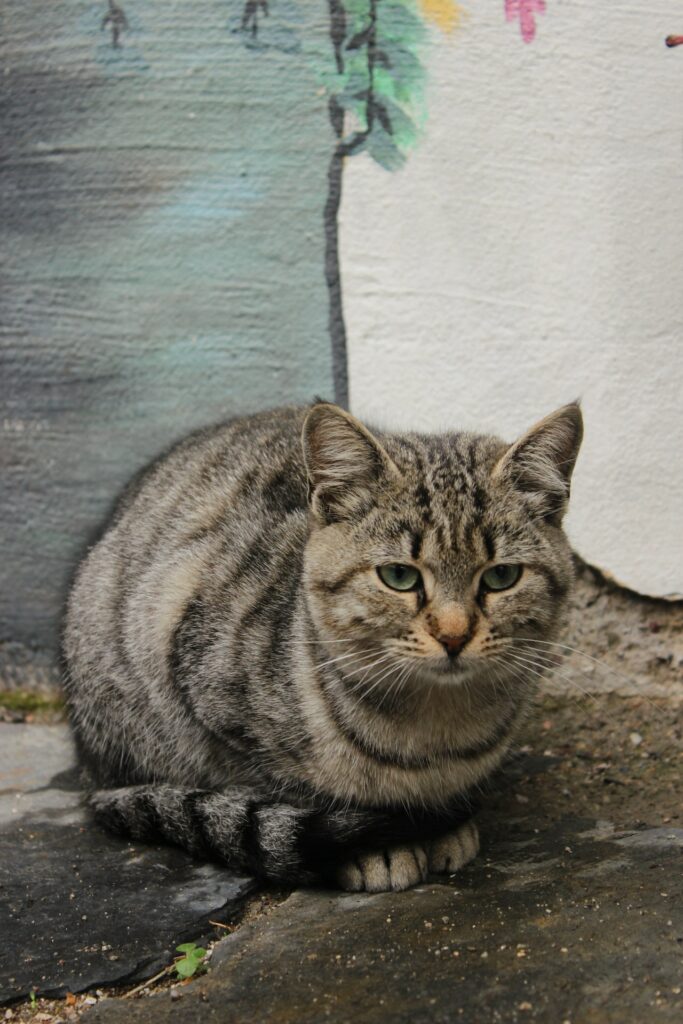Is Vinegar an Effective Deterrent for Keeping Cats From Pooping in Your Garden?
Are you fed up with cats pooping in your garden and wreaking havoc on your plants? If so, you’re not alone. Many people have tried various methods of deterring cats from using their gardens as a litter boxes, but does vinegar work as an effective deterrent? In this article, we will explore the effectiveness of vinegar in keeping cats away from our yards and gardens. We’ll discuss why it might be a good option and how best to use it if you decide to give it a go. So read on to find out more about does vinegar deter cats from pooping!
Does Vinegar Deter Cats From Pooping?
It is common for cats to use the outdoors as their restroom, and pet owners are often frustrated with this behaviour. Many have heard that spraying vinegar on the areas where cats go to the bathroom can help deter them from pooping in that location. But does vinegar really work for this purpose? This article will explore what science has to say about using vinegar to stop cats from going potty in unwanted areas.
What Causes Cats To Use The Outdoors As A Bathroom?
Cats naturally like to mark their territory, and they do so by urinating and defecating in certain spots. This behaviour is called spraying or scent marking, and it helps cats feel safe and secure in their environment by communicating their presence to other cats nearby. Although this can aggravate pet owners, it is perfectly natural for cats and should not be punished or reprimanded.
What Does Science Say About Using Vinegar To Discourage Spraying?
Although there is no scientific evidence that vinegar is an effective solution to keep cats from pooping outside, some anecdotal reports of pet owners have successfully used it as a deterrent. Some believe that the vinegar smell can be unpleasant enough to drive cats away from certain areas, while others think that it might just mask the smell of cat urine so that other cats won’t come near the area. One study conducted in 2016 found that spraying diluted white vinegar on furniture successfully reduced urine marking behaviours in some cases. Still, more research needs to be done before any conclusive statements can be made about its efficacy when used as a deterrent for outdoor pooping.
Advantages of Using Vinegar as a Deterrent
There are several advantages to using vinegar as a deterrent for outdoor pooping:
- It’s inexpensive: Vinegar is an easy option due to its affordability; diluted white vinegar can usually be found at your local grocery store or big-box retailer.
- It’s safe: Vinegar is non-toxic and harmless if used properly; when diluted with water at a ratio of 1:1, it should not cause any harm or discomfort if accidentally ingested by humans or animals.
- It’s easy: All you need to do is mix together equal parts water and white distilled vinegar (or apple cider vinegar) into a spray bottle and then spritz wherever you want the deterrent effect – no scrubbing required!
- It may work: While there isn’t much scientific evidence supporting its effectiveness as a deterrent for outdoor pooping, some pet owners report having success with using it in those circumstances.
Disadvantages Of Using Vinegar As A Deterrent
Although there are some potential benefits associated with using vinegar as a deterrent for outdoor pooping, there are also some potential drawbacks:
- It may not work: Unfortunately, because there isn’t much scientific evidence available on this topic yet, we can’t guarantee its effectiveness as a way to deter cats from pooping outside your home or business premises – even if some pet owners have had success with it previously!
- The smell may linger undesirably: Depending on how heavily you spray the area with diluted white (or apple cider) vinegar solution, the odour might linger longer than desired; this could potentially make your living space less pleasant than before!
- It could irritate skin/eyes/mucous membrane: Be sure to wear gloves when handling undiluted white (or apple cider) vinegars since they can cause irritation if contact occurs – particularly if you’re allergic! Additionally, never spray directly onto skin/eyes/mucous membranes without diluting first!
Conclusion
In conclusion, although there isn’t much scientific evidence available yet about using vinegar as a deterrent for outdoor pooping, many pet owners report having success with using them in those circumstances. Some potential benefits are associated with using vinegar, such as being inexpensive, safe when used properly (when diluted), easy-to-use (just mix equal parts water + white distilled vinegar into a spray bottle), and possibly successful at reducing behaviours.
However, there are also potential drawbacks such as potentially not working depending on individual circumstances plus unpleasant smells lingering longer than desired which could make living spaces less pleasant than before plus the risk of skin/eye/mucous membrane irritation when handling undiluted white (or apple cider) vinegar directly! Ultimately though, whether or not one chooses to use diluted white (or apple cider) vinegar as a possible deterrent against outdoor pooping comes down to each cat owner – understanding both pros & cons before proceeding is highly recommended & hopefully, this article has provided helpful insights into what science currently says about this topic so one can make an informed decision moving forward…
If you’re looking for a way to protect your pet from unexpected medical expenses, then consider getting them insured with Furrr.co.uk! With plans tailored to suit every budget, this is one way you can ensure your furry friend gets the care they need without breaking the bank. Plus, signing up takes just a few minutes – so why not get started today? Your pet deserves peace of mind, and Furrr.co.uk can help make it happen!










